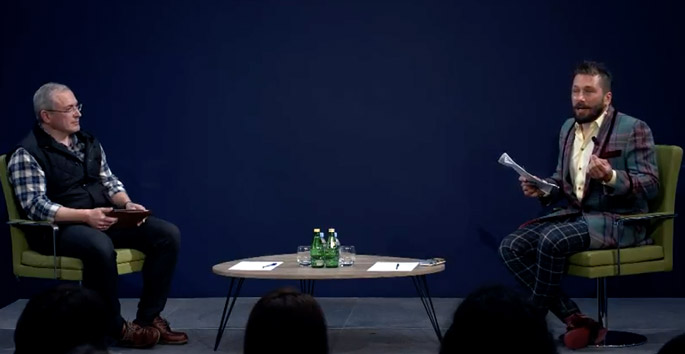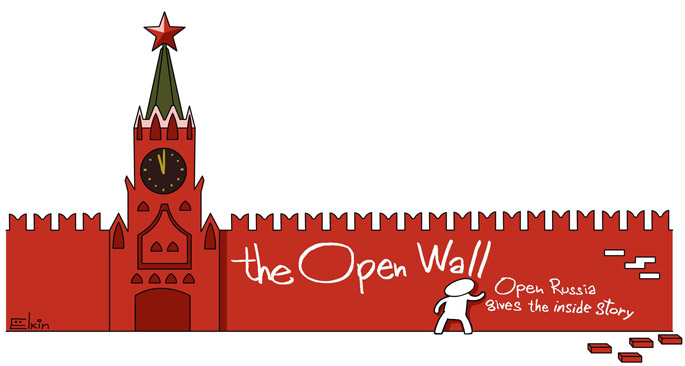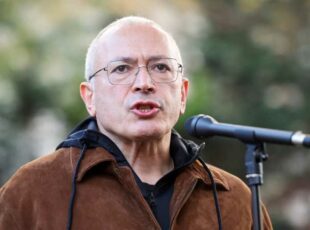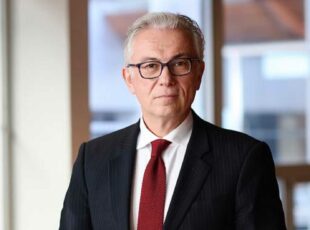Russia’s new counter-elite
Russia’s new counter-elite
Earlier this week, Mikhail Khodorkovsky announced that he was joining forces with the former mobile phone magnate Evgeny Chichvarkin, whose business was also taken away from him. Together, do they spell trouble for the Kremlin?

Dmitry Oreshkin
They had much to say that was interesting. A sampling of some of the highlights gives you an idea:
When the regime departs the scene, a just society will not materialise of its own accord. Mikhail Khodorkovsky
We’ve huge reserves of energy inside us – colossal potential. What’s this potential being squandered on? On fighting one another, on being aggressive. Evgeny Chichvarkin
Perhaps no other country has ever paid such a small price for freedom. Evgeny Chichvarkin
The current regime has unequivocally stolen the future from us. Evgeny Chichvarkin
We need iPhone-like laws. What’s the beauty of the iPhone? The intuitiveness of it – you barely need to read the instructions. Evgeny Chichvarkin
We can expect serious change to have taken place in Russia by 2024. Mikhail Khodorkovsky
An empty fridge opens the door to the street. Evgeny Chichvarkin
Call them the sound bites; and very effective they were, not to say stirring. But there will be no Khodorkovsky and Chichvarkin political party in Russia, because the Putin regime will never permit its registration. What Khodorkovsky and Chichvarkin do have, is a combination of financial and media resources plus the influence wielded by both of them. They are, of course, not commensurate – everything is much bigger with Khodorkovsky – but Chichvarkin is a striking personality who can think creatively; and his participation will add a certain weight to the alliance.
The main problem is that, in the current Putinist system of values, elections in Russia are merely for show, as they were in the Soviet Union and still are in Chechnya. The constituency results will reflect just what the boss wants them to.
In the 2012 presidential elections in Chechnya, Kadyrov (for Putin) won 99.8% of the vote on a turnout of 99.6%. This could never happen in real life. The voting results were rigged.
But there will be no come-back on Kadyrov because it goes against the whole power vertical of the state, based on agreeing backroom deals rather than on the Constitution. So there is really not much point in trying to take on the electoral system, when the election results will be falsified.
Vladimir Putin’s reinforced power vertical pushes political meaning into a completely new dimension, for this political model can be changed only from above, if citizens suddenly feel that it is not working politically or economically, or if the people at the top of the vertical feel that they are losing too much. Then the political situation suddenly changes, either because the elites themselves find a solution and re-orientate the higher organs of state, which take the decisions, or a constitutional coup results in a lawful or unlawful change of government; as it did in the days of the tsars.
The survival of the Putin government depends not on the mood of the voter, but of the regional elites, which either do or do not support the regime. For the moment they are supportive, because democratisation or a move to a Western-style standard political life, would mean they lose too much. The monopolist market suits them, although on the whole it holds back the development of the Russian economy.
However, until push comes to shove, while the economy is hanging on, some kind of life is still possible, especially for members of the elite. They don’t feel too bad, so they are supportive of Putin’s strategy.
But more and more people with financial, media and political resources are now outside the structure called the “Putin consensus elite.” Khodorkovsky and Chichvarkin in particular, they are starting to work on changing the political structure. They understand that elections are highly unlikely to achieve anything because they are just one of the instruments for exerting pressure, but certainly not the crucial mechanism, which will be needed to change the system of priorities in the Russian government.
So they will take part in the elections, using them to put pressure on Vladimir Putin through the media or the electorate, to introduce and finance some alternative candidates. They know that this cannot be the mechanism for change, but more of a way to train up a new political elite, a counter-elite focused on other values closer to the systems in Europe. That is what the alliance between Khodorkovsky and Chichvarkin is all about – a centre for the creation of a counter-elite.
For Putin this is an outright challenge to his vertical, top-heavy government because that Khodorkovsky/Chichvarkin alliance intends to topple it, and offer other ways of developing Russia. For the Putin regime, this is subversion, and they will use the security services to fight it with force – witness the creation of the 400,000-strong National Guard.
Until now, the regime has been making active use of old-style Soviet methods i.e. kompromat [discreditation], showing filmed material of Mikhail Kasyanov [in a sex sting] etc. The Putin regime does not allow for any competition, so there will continue to be such attempts to harass and discredit. But Khodorkovsky and Chichvarkin working together say one particular thing to the Kremin: the stakes have been raised very much higher.
A version of this article first appeared in Russian at: http://obozrevatel.com/blogs/16937-v-rossii-formiruetsya-novaya-kontrelita.htm




